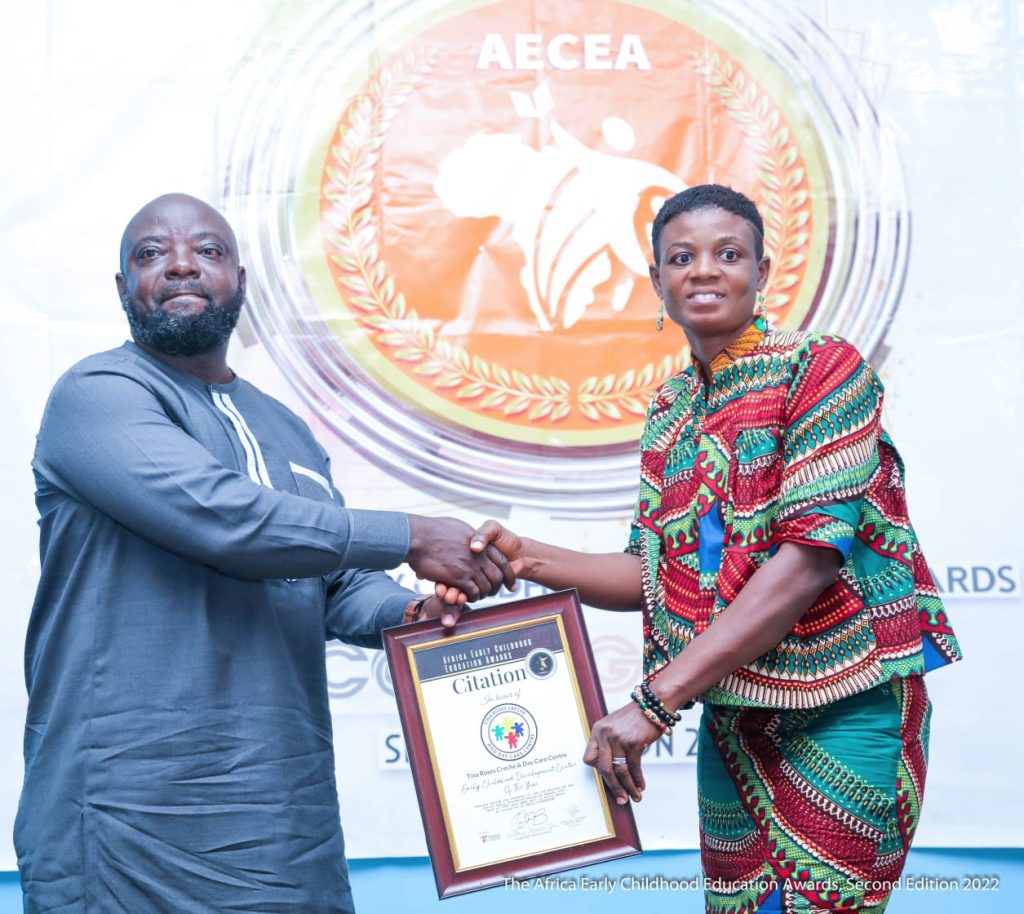By Benjamin A. Commey
Accra, Nov 21, GNA — Dr Violet Makuku, a Quality Assurance Specialist, has charged African governments to put in place policies and programmes to strengthen early childhood education on the continent.
That, she said, would help address deficiencies that mostly encountered at the higher level learning such as secondary schools and universities.
Dr Makuku said this when she delivered a keynote address at the second edition of the Africa Early Childhood Education Awards held in Accra, over the weekend.
The awards, organised by the Transformational Empowerment and Rural Integration in Africa (TERIA) Foundation, a nonprofit organization, was to acknowledge and reward early childhood educators across the continent.
It was on the theme: “The Role of the Early Childhood Educator in an Inclusive School”.
Dr Makuku said: “Today, there is a lot of evidence that there are a lot of deficiencies in Africa’s secondary schools and university students outstandingly in English grammar writing and spoken.
“This tells us a lot about the importance of a strong foundation that should be laid down during the early childhood education stages. Once the children miss quality early childhood education, they are likely to face challenges in higher levels of learning.”
She also emphasised that equipping the children with the requisite basics would reduce the number of school drop outs and urged governments, NGOs and other key stakeholders to work together and support the schools and staff in the academic institutions to deliver on that mandate.
In all, fourteen caregivers and early childhood education institutions were awarded.
The award categories were: Early Childhood Education Centre of the year, Outstanding Educator, Proprietor/Proprietress of the year, Best Centre for Disability and School Manager of the year.
Dr Makuku commended the organisers for the initiative and urged them to be consistent to ensure that child caregivers continued to be inspired to work harder.
Mrs Nyamikeh Kyiamah, Regional Vice President for Africa, World Organisation for Early Childhood Education (OMEP), also noted that Early Childhood Care and Education (ECCE) was more than preparation for primary school.
“It aims at the holistic development of a child’s social, emotional, cognitive, and physical needs in order to build a solid and broad foundation for lifelong learning and wellbeing,” she explained.
Globally, she said, it had become paramount for countries to put in place policies and programmes for the development of early childhood care and education to achieve the Sustainable Development Goal Four.

“The importance of ECCE has been reinforced in the Sustainable Development Goal (SDG)4 , which is to ‘Ensure inclusive and equitable quality education and promote life-long learning opportunities for all’. In particular, Target 4.2, which aims to ‘By 2030, ensure that all girls and boys have access to quality early childhood development, care and pre-primary education so that they are ready for primary education,’” she added.
Mrs Kyiamah, therefore, encouraged collaboration between early childhood educators and parents through effective PTA meetings, parent teacher conferences to help provide the needed support and care children at that stage required to develop.
Mr Walter Mawuli Gli, Founder, TERIA Foundation, called for recognition of early childhood educators and asked that they were well paid to effectively deliver on their mandate.

GNA